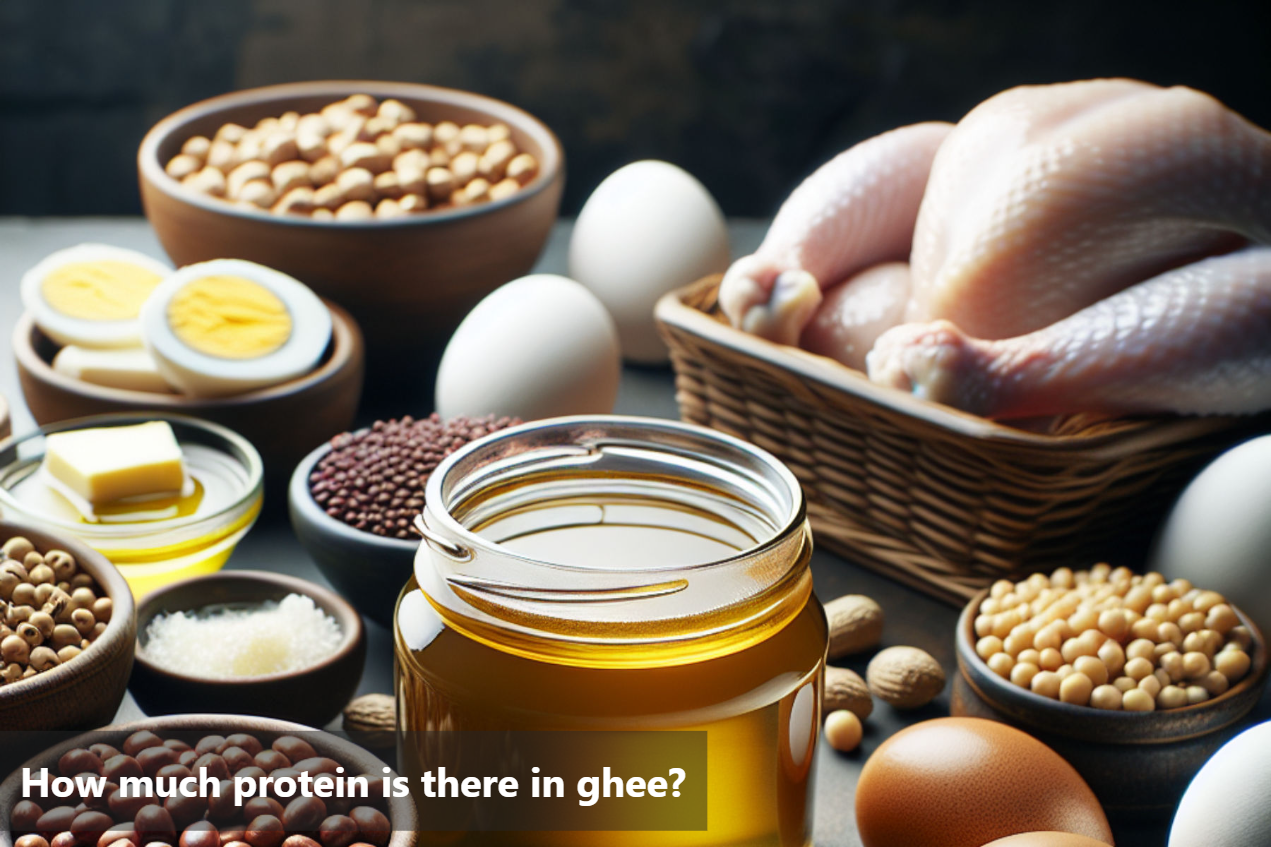
How much protein is there in ghee?
Ghee is a type of clarified butter that is commonly used in cooking and has gained popularity for its unique flavor and potential health benefits. It is rich in nutrients and provides a source of essential fats for our body's needs. When it comes to the nutritional content of ghee, it contains a mix of saturated fats, monounsaturated fats, and essential fatty acids that can support overall well-being.
One crucial aspect of ghee that often goes unnoticed is its protein content. Although ghee is mainly known for its fat content, it surprisingly offers small amounts of protein as well. The protein content in ghee per 100g may vary slightly depending on the brand and preparation method, but it usually ranges between 0.5-1g per tablespoon. While ghee may not be a significant protein source compared to other foods, every little bit counts towards meeting our daily protein requirements.
Understanding the protein content in ghee is essential for individuals looking to balance their macronutrient intake effectively. By incorporating ghee into your diet in moderation, you can not only enjoy its rich flavor but also benefit from its nutritional value, including the subtle protein contribution it offers. So, next time you reach for that dollop of ghee, remember it's not just about the fats, but also the protein goodness it provides.

Nutritional Content of Ghee
One tablespoon (15g) of ghee contains:
Calories |
130 |
Fat |
15g |
Sodium |
0mg |
Carbohydrates |
0g |
Fiber |
0g |
Sugars |
0g |
Protein |
0.5 g |
Vitamin A |
107.5mcg |
Vitamin E |
0.4mg |
Vitamin K |
1.1mcg |
Protein Content in Ghee
When it comes to the protein content in ghee, it might surprise you to know that ghee is not primarily a protein source. In fact, ghee is predominantly composed of fats.
However, in a 100g serving of ghee, there is approximately 0.5g of protein. This amount is significantly lower compared to protein-rich foods like meat, beans, or dairy products.
While ghee might not be a substantial protein source, it does offer other valuable benefits.
Ghee is a rich source of healthy fats, including essential fatty acids like omega-3 and omega-6.
These fats play a crucial role in supporting brain health, hormone production, and overall bodily functions.
Additionally, ghee is a great option for individuals following a ketogenic or low-carb diet due to its high fat content and minimal carbohydrates.
Incorporating ghee into your diet can provide a delicious and nutritious alternative to other cooking fats. Its unique flavor profile adds depth to dishes, and its high smoke point makes it ideal for sautéing, frying, or baking. While ghee may not be a significant protein source, its array of health benefits and culinary versatility make it a worthwhile addition to your dietary routine.
Factors affecting protein content in ghee
-
Source of Milk:
The type of milk used (cow, buffalo, goat) can influence the protein content in ghee.
-
Processing Method:
Traditional methods vs. commercial processes may result in different protein concentrations due to variations in extraction and purification.
-
Butter Quality:
The quality of butter used to make ghee can impact its protein content. High-quality, fresh butter may retain more proteins.
-
Cooking Duration:
The length of time ghee is cooked can affect protein content. Prolonged heating may lead to denaturation or breakdown of proteins.
-
Clarification Process:
The thoroughness of the clarification process can impact the removal of milk solids, affecting the protein content.
-
Storage Conditions:
Storage at higher temperatures or exposure to light and air can degrade proteins over time.
-
Diet of the Animal:
Animals fed a balanced diet with adequate protein might produce milk with higher protein content, influencing ghee quality.
-
Water Content:
Water present in butter can affect protein concentration during the ghee-making process.
-
Variability in Commercial Products:
Different brands or batches of commercial ghee might have varying protein contents due to production methods and quality control.
Quality of Starting Material:
The quality and freshness of the initial butter used can significantly influence the protein content in the resulting ghee.

Examining the Protein Presence in Ghee
Ghee, a delicious clarified butter with a rich aroma and flavor, not only enhances the taste of dishes but also offers health benefits. When it comes to protein in ghee, it may surprise you that it contains a decent amount per 100g serving. While ghee is primarily known for its healthy fats, it also provides a notable protein content that can contribute to your daily protein intake.
Considering the protein in ghee as a valuable addition to your diet can bring diversity to your protein sources. Whether you are a vegetarian or looking for alternative protein options, incorporating ghee can be a flavorful choice.
Ghee offers not only a unique taste but also a source of protein that can complement your nutritional needs. Next time you reach for a protein source, remember to include ghee in your list of options and savor both the flavor and the nutrients it brings to your meals.
This Blog post is an initiative by Lo! Foods, to provide accurate and Nutritionist / Doctor approved information related to Health. Lo! Foods is India's leading brand for Everyday Functional Foods. Foods designed for specific Health conditions or Needs. Lo! Foods also runs India's largest range of Low Carb Healthy Cloud Kitchens, under the brand names of Lo!, ProteinChef, ATH (All Things Healthy) and DiabeSmart.















Leave a comment
Your email address will not be published.